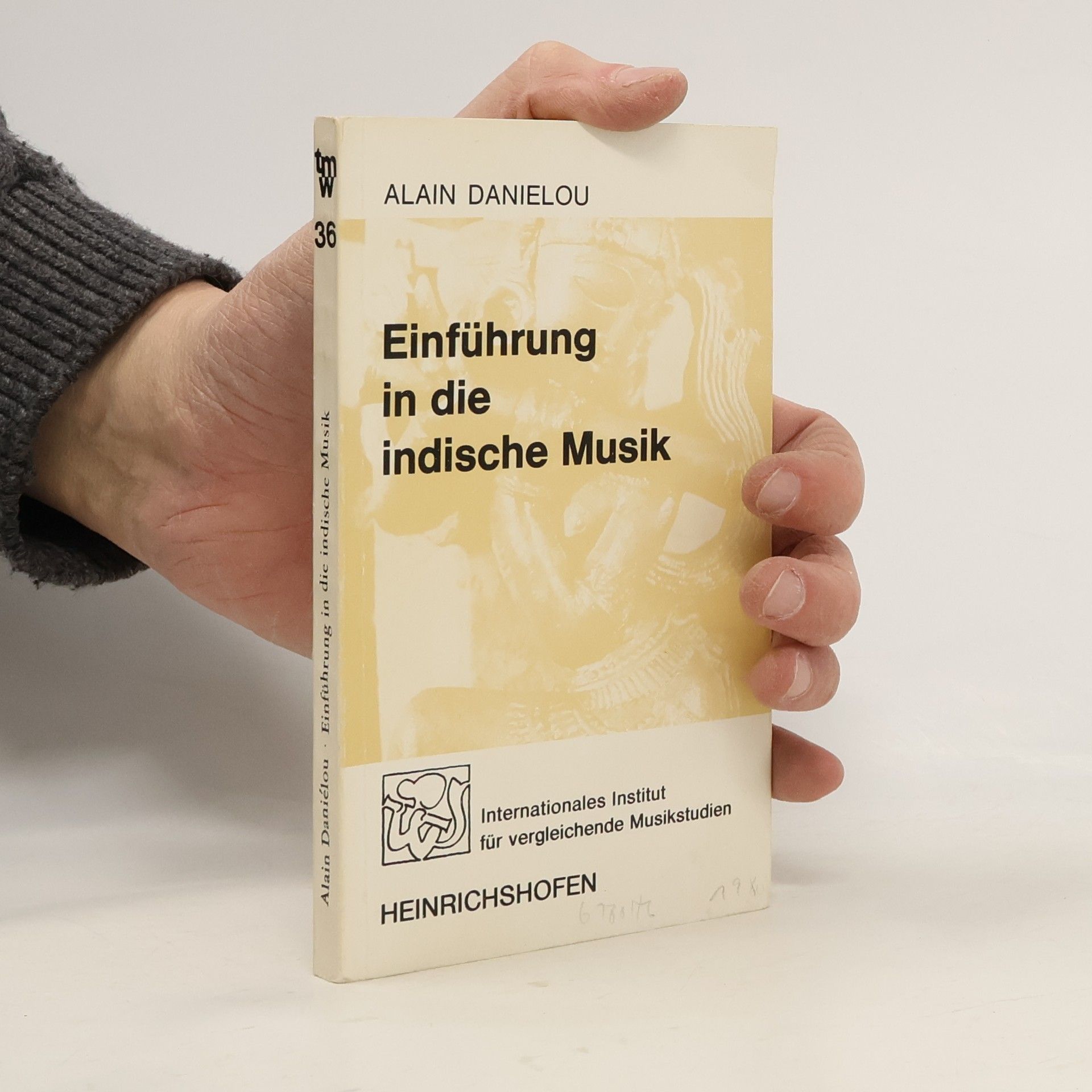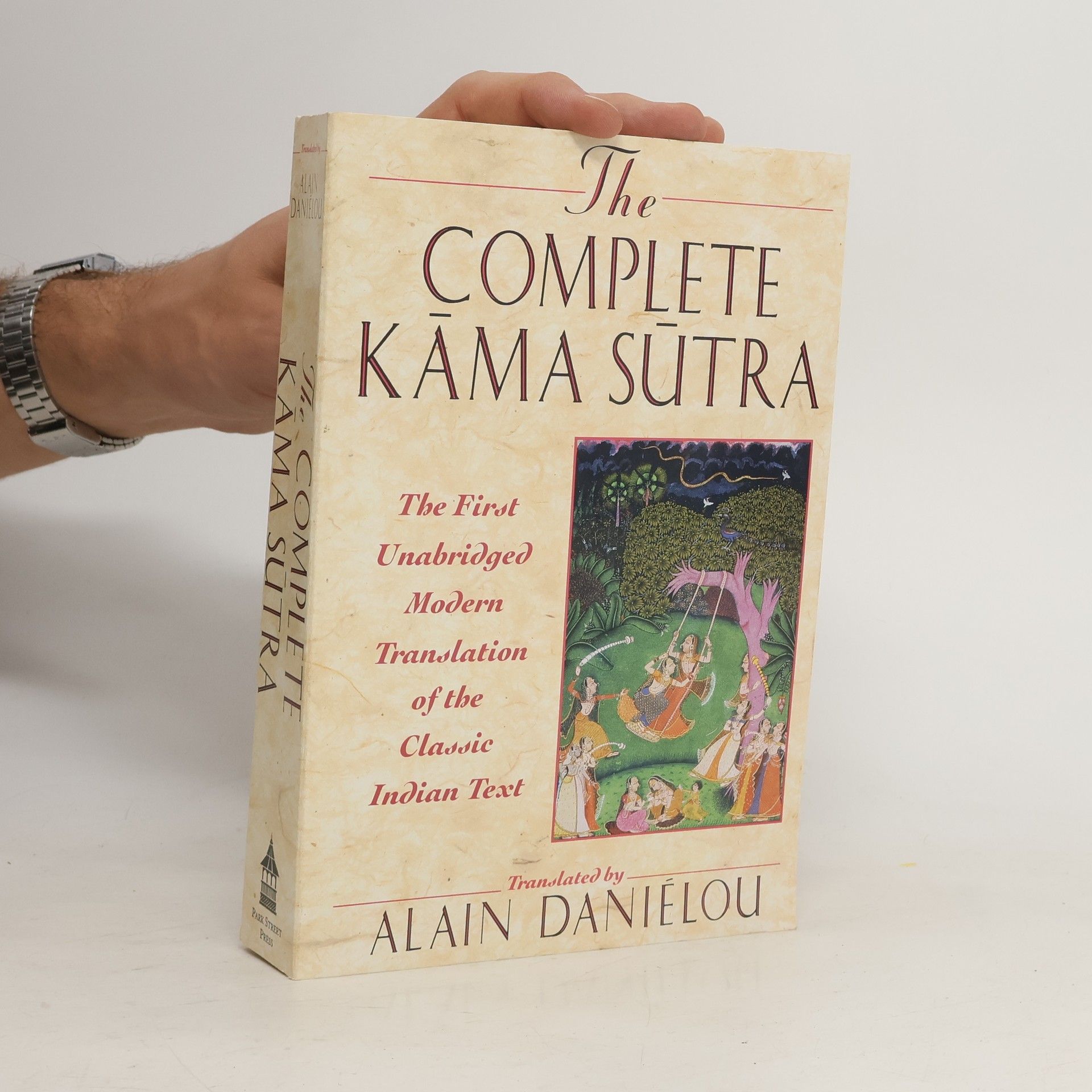Kama sutra. L'erotismo divinizzato
- 576pagine
- 21 ore di lettura
Alain Daniélou fu uno studioso britannico-francese dedito allo studio e alla traduzione di testi indiani. Il suo lavoro è caratterizzato da una profonda comprensione della filosofia, della teologia e della musica indù. Si adoperò per creare un ponte tra il pensiero occidentale e quello orientale, e le sue traduzioni sono apprezzate per la loro accuratezza e qualità letteraria. La sua eredità continua a ispirare i lettori che cercano un apprezzamento più profondo della cultura e della spiritualità indiana.






Music has always been esteemed for its power to speak directly to our higher consciousness, a power founded in the purity of simple harmonic ratios. In this book, Alain Danielou traces the development of musical scales and tuning from their origins in both China and India, through their merging in ancient Greece, and on to the development of the Western traditions of modal and polyphonic music. Understanding these potent harmonic relationships offers a way for today's musicians to transcend the limitations of overly rationalistic music by drawing on its metaphysical roots.
The First Unabridged Modern Translation of the Classic Indian Text
The world's oldest and most widely read guide to the pleasures and techniques of sex, the Kama Sutra was compiled in the fourth century A.D. by a Brahmin and religious scholar name Vatsyayana, who worked from texts dating back to the fourth century B.C. Until the present, the only English translation of his Hindu love classic was that of the famous English explorer Sir Richard Burton, published in 1883. Unlike Burton's version, Alain Daniélou's new translation preserves the numbered verse divisions of the original and includes two essential commentaries: the Fayamangala commentary, written in Sanskrit by Yashodhara during the Middle Ages, and a modern Hindi commentary by Devadatta Shastri. Whereas Burton's Victorian reluctance to translate certain terms obscured our understanding of the philosophy and techniques of the Kama Sutra, Daniélou has preserved the full explicitness of the original, dealing with everything from the art of scratching to relations with the wives of others. Realistic and pragmatic in its approach, the Kama Sutra deals without ambiguity or hypocrisy with all aspects of sexual life--including marriage, adultery, prostitution, group sex, sadomasochism, male and female homosexuality, and transvestism. The text paints a fascinating portrait of an India whose openness to sexuality gave rise to a highly developed expression of the erotic.
Pour Alain Daniélou, l'Occident a perdu sa propre tradition et éloigné l'homme de la nature et du divin. Il nous fait découvrir ici que les rites et les croyances du monde occidental ancien sont très proches du Shivaïsme et très aisément expliqués à l'aide des textes et des rites préservés dans l'Inde. Ce sont les religions relativement récentes du monde aryen et sémitique, Judaïsme, Christianisme, Islam et Communisme qui ont éloigné l'homme du reste de la création et de l'expérience religieuse et mystique multimillénaire dont la tradition s'est préservée dans l'Inde jusqu'à nos jours et que l'Occident, s'il veut survivre, devra retrouver.L'auteur1935-1948, études de sanskrit, philosophie, théologie, musique dans les écoles traditionnelles hindoues à Bénarès; 1948-1954, professeur à l'université hindoue de Bénarès; 1954-1956, directeur de la bibliothèque de manuscrits et des éditions sanskrites d'Adyar à Madras; 1956-1963, membre de l'Institut français d'indologie et de l'Ecole française d'Extrême-Orient; 1963-1977, directeur de l'Institut international d'études comparatives de la musique à Berlin et Venise.